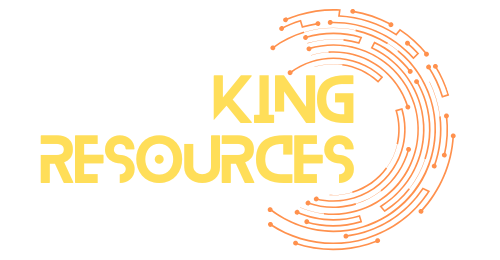Deciding whether to buy or rent a home can feel like choosing between a chocolate cake and a salad. Sure, both options have their perks, but one definitely sounds more tempting. While buying often comes with the promise of a cozy slice of equity, renting offers the freedom to escape at the end of the lease—no strings attached.
In today’s housing market, the buy vs rent debate has never been more relevant. With fluctuating prices and evolving lifestyles, it’s crucial to weigh the pros and cons. So, is it time to invest in that dream home or keep the flexibility of renting? Let’s dive into the factors that can help make this deliciously tricky decision a little easier.
Table of Contents
ToggleUnderstanding the Buy Vs Rent Decision
The choice between buying and renting a home involves several important factors. Evaluating both options reveals distinct advantages and challenges relevant to your lifestyle preferences.
Buying a home allows individuals to build equity over time, resulting in long-term financial benefits. It entails substantial upfront costs, including down payments and closing fees that some may find overwhelming. However, with each mortgage payment, homeowners increase their investment in the property.
Renting provides flexibility that homeowners often lack, making it easier to relocate for job opportunities or personal reasons. This option typically involves lower initial costs since security deposits and first month’s rent aren’t as hefty as a down payment.
Market conditions impact each decision significantly. In a volatile housing market, renting may offer a safer option, minimizing exposure to property value fluctuations. Conversely, when interest rates are low, purchasing might present an opportunity for favorable financing terms.
Lifestyle preferences also play a crucial role. Those who prioritize stability and community ties might lean towards buying, while individuals valuing mobility may prefer renting. Maintenance responsibilities associated with homeownership often burden buyers, making renting an attractive alternative where landlords handle upkeep.
Ultimately, weighing these factors aids in determining the best option. Analyzing financial scenarios based on anticipated duration of stay and personal goals enhances decision-making. This analysis helps individuals align their residential choices with both their current needs and future aspirations.
Factors to Consider in the Buy Vs Rent Decision

Several critical factors affect the decision between buying and renting. Understanding these aspects can lead to a more informed choice.
Financial Implications
Cost plays a pivotal role in the buy vs rent decision. Buyers face significant upfront expenses like down payments and closing costs. Monthly mortgage payments often include property taxes and homeowner’s insurance, adding to overall expenses. Renters typically experience lower initial costs and monthly payments without the burdens of property taxes or maintenance responsibilities. Analyzing long-term financial projections reveals that buying may build equity over time, while renting may provide more immediate cash flow flexibility. Market conditions impact these financial implications, influencing whether renting provides a better short-term strategy or if buying serves long-term goals.
Lifestyle Choices
Lifestyle preferences influence the buy vs rent debate. Those valuing flexibility tend to favor renting, as it allows for easy relocation based on job opportunities or personal circumstances. Renters enjoy the ability to change living environments without being tied to a property. On the other hand, individuals seeking stability often prefer buying, as homeownership provides a sense of permanence and the chance to personalize their spaces. Personal goals also factor into the decision; for instance, families may lean towards buying for community ties and access to schools. Understanding these lifestyle dynamics allows individuals to align their housing choices with their long-term aspirations.
Pros and Cons of Buying
Buying a home presents distinct benefits and drawbacks. Understanding these can influence the decision-making process.
Long-Term Investment
Homeownership often acts as a long-term investment. Equity builds over time as property values generally appreciate. In many markets, historical trends show that homes increase in value, offering potential for profit when sold. Homeowners gain control over their asset, allowing for renovations and improvements. This customization can lead to increased property value. Although real estate markets fluctuate, homes typically serve as stable investments against inflation. Individual circumstances like job stability and market conditions can affect the overall return on investment potential.
Maintenance Responsibilities
Owning a home entails several maintenance responsibilities. Homeowners bear the burden of repairs, such as roof replacement and plumbing issues. Unlike renters, individuals face long-term costs for upkeep and routine maintenance. Landscaping, HVAC systems, and appliance repairs require added attention. Many find that these responsibilities consume time and money, making ownership commitments significant. Such obligations can create stress or affect personal time management. In contrast, renting often means landlords handle maintenance tasks, allowing renters to focus on flexibility and relocation.
Pros and Cons of Renting
Renting a home presents distinct advantages and challenges. Individuals considering this option often weigh flexibility and costs against potential downsides.
Flexibility and Mobility
Renters experience significant flexibility. They can relocate more easily for job changes or personal reasons. Short-term lease agreements adapt to lifestyle changes, providing the freedom to move without extensive commitment. This flexibility is particularly appealing for recent graduates or those exploring new career opportunities. Additionally, renters avoid burdensome long-term obligations associated with homeownership, allowing them to keep options open.
Lower Upfront Costs
Lower initial costs characterize the renting process. For instance, renters typically pay a security deposit and first month’s rent, significantly less than down payments required for buying a home. Immediate affordability can be attractive for individuals with limited savings. Monthly payments often include utilities, which lessen financial planning complexities. Overall, lower upfront costs can enable renters to allocate funds elsewhere, such as investments or savings for future purchases.
Deciding whether to buy or rent a home is a significant choice that impacts financial stability and lifestyle. Each option presents unique benefits tailored to different needs and circumstances. Individuals should carefully consider their long-term goals and current market conditions before making a commitment.
Ultimately, aligning housing decisions with personal priorities can lead to greater satisfaction. Whether one seeks the stability of homeownership or the flexibility of renting, understanding the implications of each choice is essential for making the right decision. Taking the time to evaluate these factors ensures a choice that meets both immediate and future needs.









